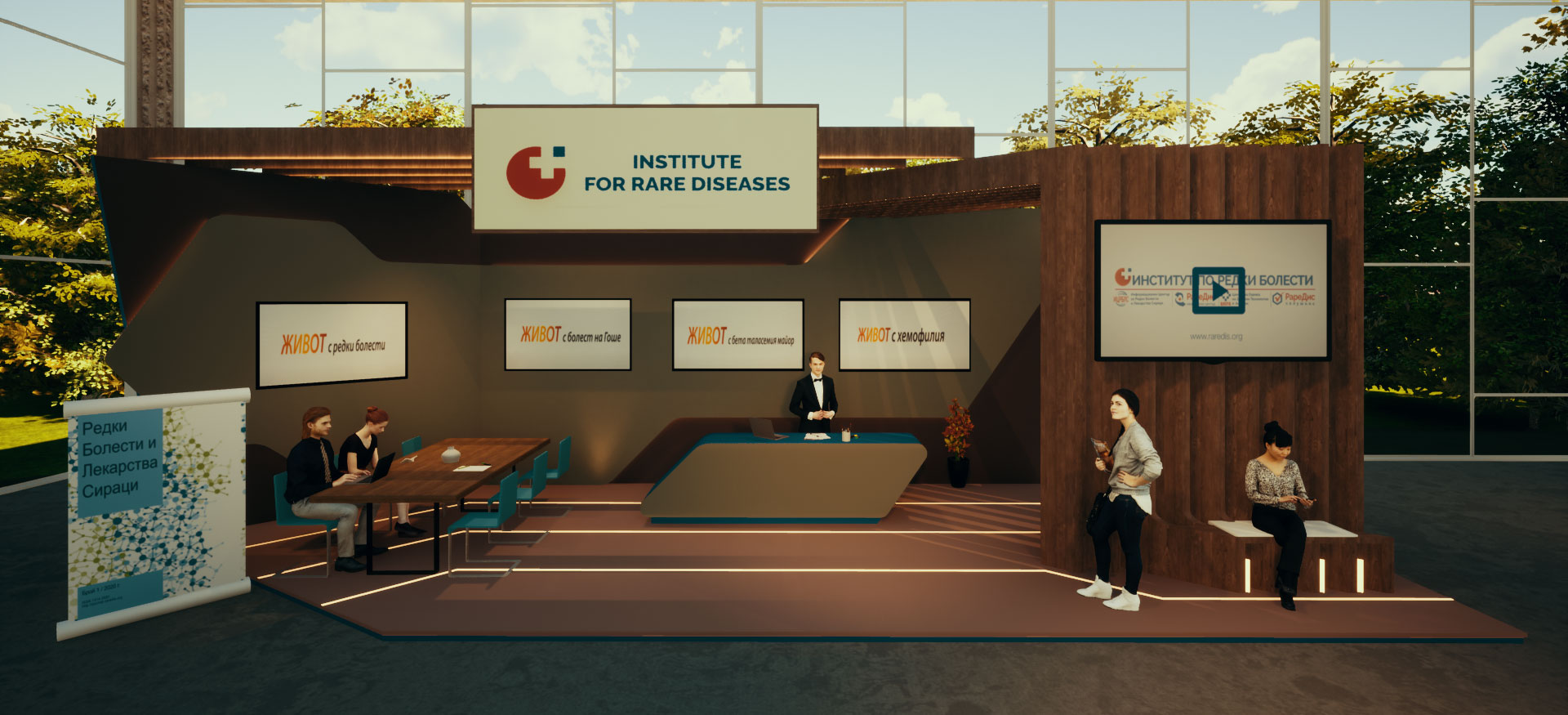
IRD's scientific journal
Our journal "Rare diseases and orphan drugs" (ISSN 1314-3581) is a peer-reviewed electronic journal with open access and no publishing fees . It is issued by the Bulgarian Association for the Promotion of Education and Science (BAPON) in 4 issues per year.
The journal Rare Diseases and Orphan Drugs accepts for publication original scientific articles, reviews, clinical cases, letters to the Editor, information about past and upcoming scientific events and other materials from the fields of medicine, dentistry, pharmacy and public health, with a special focus on rare diseases and orphan drugs.
The journal Rare Diseases and Orphan Drugs is indexed in the automated bibliographic database "Bulgarian Medical Literature" and Google Science . The journal is included in the National Reference List (NRS) of contemporary Bulgarian scientific publications of NACID
- Scope - medicine, dentistry, pharmacy and public health, with a special focus on rare diseases and orphan drugs;
- Types of publications - original scientific articles, reviews, descriptions of clinical cases, letters to the Editor, information on past and upcoming scientific events;
- Language - Bulgarian with a summary in English;
- Review - All submitted materials are subject to review before publication;
- Frequency - 4 per year;
- Indexing - Bulgarian medical literature ; Google Science has a digital object identifier (DOI) in the CrossRef;
- Licensing - CC BY-NC 4.0 License;
- Copyright - belongs to the authors of the published articles;
- Liability - RBLS is not responsible for the accuracy of the content of published articles;
- Access - open source electronic publications;
- Publishing fees - Free.
- When submitting a new post, please attach a completed and signed DECLARATION OF AUTHORITY AND POTENTIAL CONFLICT OF INTEREST, which you can download from HERE.
Life with rare diseases
What are rare diseases? Those are diseases that affect less than 1 in 2 000 people. It is estimated that about 6% of the Bulgarian population suffer from rare diseases. With the advancement of medicine and innovative technologies, the opportunities for early diagnosis and treatment of people affected by rare diseases are significantly increased, which helps them living a fulfilling life, create families and have successful personal and professional realization in the society.
The media campaign “Like All of Us” is organized by the Institute for Rare Diseases, the National Alliance of People with Rare Diseases and the Association of the Research-Based Pharmaceutical Manufacturers in Bulgaria (ARPharM).
Life with Gaucher disease
In Bulgaria there are only 22 people with Gaucher disease – a hereditary disease in which the body cannot break down the lipid glucocerebroside. In patients, there is an accumulation of the lipid in the liver, spleen, bone marrow and nervous system, which interferes with their normal functioning. The research work of many scientists around the world has led to the creation of enzyme replacement therapy, as a result of which people with Gaucher disease can have now an independent and fulfilling life. Take a look at the story of one patient with Gaucher disease in Bulgaria, Christian Dimitrov and find out more about this rare disease.
The media campaign “Like All of Us” is organized by the Institute for Rare Diseases, the National Alliance of People with Rare Diseases and the Association of the Research-Based Pharmaceutical Manufacturers in Bulgaria (ARPharM).
Life with beta thalassemia major
Thalassemia is a hereditary disease that affects hemoglobin synthesis. Hemoglobin is a part of the red blood cells and its main function is to carry oxygen to the body. A person with this disease produces “defective” hemoglobin, which makes red blood cells (erythrocytes) unstable and they are destroyed faster than usual. Women with the heavier forms of thalassemia have not been able to have children until recently due to the damage of the disease to the body. Now, thanks to the development of medicine, women with this disease can become pregnant and have healthy children. Learn about the story of Maria Ermakova from Stara Zagora, who was diagnosed with beta-thalassemia major, but that did not stop her from dreaming and starting a family.
The media campaign “Like All of Us” is organized by the Institute for Rare Diseases, the National Alliance of People with Rare Diseases and the Association of the Research-Based Pharmaceutical Manufacturers in Bulgaria (ARPharM).
Life with hаemophilia
Haemophilia is a disease that is characterized with impaired blood clotting. Due to the lack of a blood clotting factor, it takes longer for the bleedings to stop, which makes even the slightest scratches or injuries dangerous. This rare disease mainly affects men with a frequency of 1 in every 5 000. Innovations in medical science have led to the creation of treatments that allow patients to live actively and even exercise. Find out more about haemophilia from the story of Dimitar Petrov and Boyan Boyanov, who is also one of the first diagnosed patients in Bulgaria.
The media campaign “Like All of Us” is organized by the Institute for Rare Diseases, the National Alliance of People with Rare Diseases and the Association of the Research-Based Pharmaceutical Manufacturers in Bulgaria (ARPharM).

